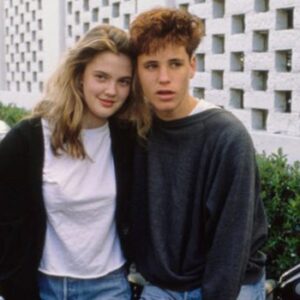My husband’s niece was about to be placed in foster care. He begged me to adopt her, but I told him I had always dreamed of having our own children. He slammed his hand on the table so hard the dishes rattled, and his voice broke as he said, “How can you be so cruel? If you don’t agree to adopt her, I’m not sure I can even look at you the same way.”
I froze. He rarely raised his voice, and I had almost never seen him cry. But that night, he looked devastated—like something inside him was coming undone.
We had spent years talking about starting a family. Baby names, tiny socks, crib colors—things that lived in my imagination for so long they felt like memories. I never thought I’d have to choose between that dream and a child I’d never met.
“She’s not our responsibility,” I whispered, barely loud enough to hear.
“She’s my family, Miriam. And now yours too. Doesn’t that matter?” he said, then pushed away from the table and walked out of the room.
I didn’t sleep. His words wouldn’t leave me: I’m not sure I can even look at you the same way.
By morning, he was sitting on the porch with a cold cup of coffee, staring into nothing.
“I just need time to think,” I said quietly.
“She doesn’t have time,” he answered, his voice tired. “They’ll place her by the end of the week.”
Her name was Callie. Ten years old. A mother lost to addiction. A father gone long before that. No grandparents. No aunts, uncles, cousins willing to take her. Just us.
Three silent days passed. Every time I looked at my husband, I saw disappointment flicker in his eyes—sharp enough to feel like a wound.
Then one afternoon, curiosity won. I typed “Callie” and her last name into Facebook. A photo popped up: her first day of third grade, standing in front of a brick wall, proudly holding a paper sign. Faded pink hoodie. One front tooth missing. Her smile was small but hopeful.
Something inside me shifted, almost imperceptibly.
But fear stayed. Fear that saying yes meant closing the door on everything I had hoped for. The pregnancy I’d imagined. The moment a nurse would place a newborn in my arms. The way I longed to see my husband’s eyes on a child who was biologically ours.
Would all of that disappear?
That night, as he packed a bag to stay at a friend’s house, I stood in the doorway, trembling.
“I’ll meet her,” I said.
He froze. “Are you sure?”
“No,” I admitted. “But I’ll meet her.”
We drove to the child services office the following morning. Callie sat on a bench hugging a stuffed bear missing an ear. She looked like she wanted to disappear into the fabric of her hoodie.
“This is Miriam,” my husband said gently.
She studied me with eyes far older than ten.
“Hi, Callie,” I said softly. “It’s really nice to meet you.”
She nodded once, cautiously.
We took her for ice cream, but she barely touched it. She answered questions with one-word replies, always glancing first at my husband, never at me.
On the ride home, I felt… not love. Not connection. Just the weight of her loneliness.
That night, I asked for one more day to think.
The next morning at work, my coworker Jenna noticed I was distant. After I told her everything, she put down her fork and said, with anger I didn’t understand:
“You know I grew up in foster care, right?”
I felt my face flush. I didn’t.
“Ten years,” she said. “Six different homes. Do you know what would have changed everything? Just one person choosing me instead of their fears.”
Her words landed like a punch.
That night, I walked into the living room and said yes.
We brought Callie home two days later.
The house felt unfamiliar, like we were all trying to breathe the same air but didn’t yet know how to share the space. She stayed quiet, polite, but distant. She wore the same hoodie every day. She never cried. She never asked for anything. She never called us anything—not even by our first names.
I tried. Meals she barely tasted. Clothes she didn’t touch. Bedtime routines she didn’t want.
I wondered if I’d made a mistake. Maybe she needed someone gentler, someone who had always dreamed of adoption. Maybe I was failing her.
Three weeks later, I came home early and heard music playing from her room—soft, like a lullaby. I peeked in.
She sat on the floor sketching in a notebook.
It was a drawing of our house. In front were three stick figures: my husband, me, and a small girl in a hoodie.
I slipped away before she noticed, and cried in the laundry room with a towel pressed to my mouth.
After that, things shifted. Slowly.
She began calling me “Mim,” an accidental slip one morning that never corrected itself.
She helped me cook pancakes. She laughed when one flipped too high and splattered on the wall.
She let me brush her hair.
Still, the fear lingered: what about the baby we’d dreamed of?
Nine months after bringing Callie home, I realized I was late. A pregnancy test confirmed it.
I stood in the bathroom staring at the two pink lines, feeling joy and fear intertwine in a way I couldn’t untangle.
When I told my husband, he wrapped me in his arms—then we noticed Callie watching from the doorway. She didn’t flinch when I knelt. Instead, she leaned in and hugged me.
“I’m gonna be a big sister?” she whispered.
I nodded, tears running down my cheeks.
Her little brother was born in the spring. Callie insisted on sleeping in the hospital chair. She held his hand and whispered, “I’ll protect you.”
And she did.
As she grew older, she transformed in ways I could never have predicted. A school project about her family tree asked her to list parents, grandparents, ancestry.
I asked gently, “Do you want to include your birth mom?”
She thought for a long moment.
“I think I want to start from now,” she said. “From you and Dad. This is where my real story begins.”
Years passed. Callie grew into a thoughtful, artistic teenager who made birthday cards by hand and helped her brother with homework. She never stopped calling me “Mim.”
And me? I still think about the moment I nearly said no.
I almost turned away from the very thing that would change me.
I thought adopting her meant giving up something precious. But instead, it gave me everything I didn’t even know I needed.
A family built by choice.
A daughter who chose to start her story with me.
And a life that unfolded in ways far more meaningful than anything I had imagined for myself.
If you ever find yourself standing at a crossroads—between the life you pictured and the life that unexpectedly opens in front of you—pause.
Look again.
Sometimes the detour is actually the path. Sometimes the unexpected child you fear you can’t love becomes the one you can’t imagine living without.
Thanks for reading. If this story touched you, feel free to share it. Someone out there might be standing at their own crossroads today.





